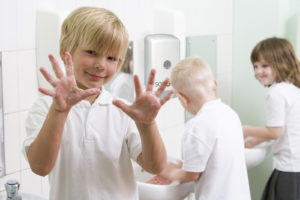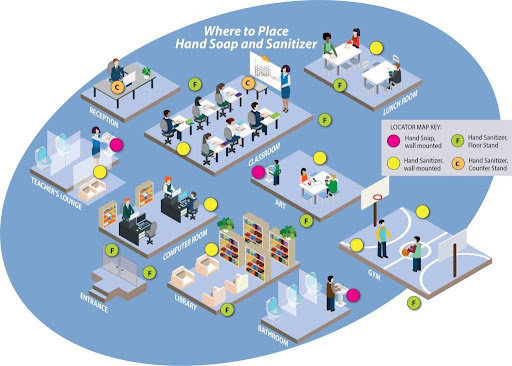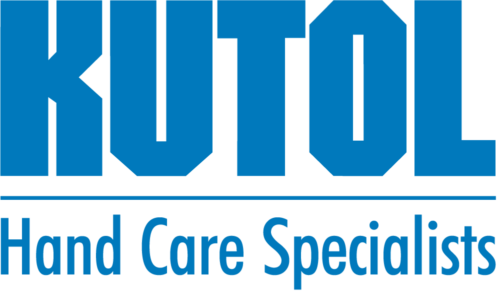As schools and universities open their doors for in-person learning, keep in mind that proper hand hygiene is one of the most important steps in preventing the spread of germs and illness. The Center for Disease Control and Prevention (CDC) recommends structuring daily routines with time added for students, faculty and staff to wash hands, using commercial hand sanitizers and soaps made in the USA.

Federal funding to help with hand care in schools
The good news is that federal funding exists to help schools safely reopen and stay open during the school year. Federal COVID-19 relief programs – including the CARES & CRRSA Acts – provide this funding. Specific use of funds is left up to the discretion of each state’s department of education but in general, funding is for:
- K-12 schools
- Higher education institutions
- Purchase of “supplies to sanitize and clean the facilities of a local educational agency”1
- “Providing principals and others school leaders with the resources necessary to address the needs of their individual schools”1
Handwashing and hand sanitizing supplies
School districts can make the most of federal relief funding by purchasing hand hygiene supplies in advance of the school year, as well as throughout the year, to help with their reopening and staying open efforts. For an effective handwashing and hand sanitizing program, schools need to be well supplied with hand soaps and hand sanitizers as well as automatic soap dispensers.
Some products to consider when setting up a hand care program:
- Hand soaps free of tree nut ingredients, dyes or fragrances are ideal for allergy-sensitive settings
- No touch, automatic soap and sanitizer dispensers reduce cross-contamination
- In high-traffic areas, instant hand sanitizers can help kill up to 99.99% of most common germs
Hand soap and hand sanitizer placement in schools
For day care centers, schools, universities and youth centers to have an effective hand hygiene program, product placement is key. There are the obvious spots where hand soap needs to be plentiful: in restrooms and other areas with sinks. But what about high-traffic areas without access to water like entrances, hallways and gyms?
When water isn’t available, the CDC recommends using hand sanitizer with at least 60% alcohol. Hand sanitizer dispensers can easily be placed throughout schools and universities in wall-mounted dispensers. For more portability, hand soap dispensers with counter and floor mount stands are ideal – especially in high-traffic areas like entrances and cafeterias. Pump bottles can be added to classrooms and visitor areas including main offices.

Funding notes
Funding under the CARES Act must be spent – any funding that goes unused must be returned. So it only makes sense that schools take advantage of this funding as a step in keeping their facility, students and staff healthy.
Health Guard® by Kutol
All Health Guard commercial hand soaps and hand sanitizers are made in the USA in a LEED Silver certified, FDA-registered facility. Specializing in commercial skin care for more than 100 years, Kutol follows the most stringent government guidelines and meets Current Good Manufacturing Practices.
1 What Congressional Covid Funding Means for K-12 Schools; February 22, 2021
